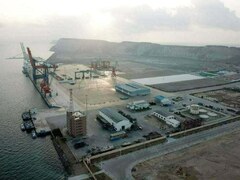 LAGOS: Nigeria's central bank has asked commercial lenders to allocate 60 percent of their foreign exchange purchases to manufacturers, in a bid to boost their ability to pay for imports and boost the economy.
LAGOS: Nigeria's central bank has asked commercial lenders to allocate 60 percent of their foreign exchange purchases to manufacturers, in a bid to boost their ability to pay for imports and boost the economy.
Widespread dollar shortages, caused by a fall in oil revenues, have hit manufacturers' ability to import raw materials and spare parts, forcing many plants to close.
The central bank said in a circular it wanted to encourage the production of local goods by asking banks to allocate more hard currency to industrial firms.
"Authorised dealers (banks) are hereby directed to dedicate at least 60 percent of their total foreign exchanger purchases from all sources to end-users strictly for the purposes of importation of raw materials, plant and machinery," the bank said in a circular dated Aug 22 and seen by Reuters on Tuesday.
In June, the bank abandoned its currency peg to the dollar, allowing the naira to weaken by 40 percent in a bid to attract more foreign investment.
But so far trading in the official foreign exchange market has been limited as those with dollars prefer to sell them for a higher rate on the black market.
Nigeria's economy contracted in the first quarter and officials have said recession is likely.
In a separate circular, the central bank asked commercial banks not to sell foreign exchange without appropriate documentation and disclosure to authorities, irrespective of the source of funds.





















Comments
Comments are closed.